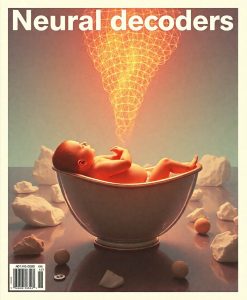Neural decoding research sits at a fascinating crossroads of technology and human understanding. When we peek inside the brain’s intricate communication networks, we’re not simply observing data—we’re glimpsing the very mechanisms of human experience and potential.
Indigenous knowledge traditions have long recognized that understanding consciousness requires nuanced, respectful approaches. My work with community wellness programs taught me that complex systems reveal themselves gradually, through patient observation and collaborative investigation. Neural decoding represents a similar journey—not a destination, but an evolving pathway toward comprehending how our minds generate meaning.
The current research by Vigotsky and colleagues doesn’t discourage scientific exploration; instead, it invites more precise, thoughtful engagement. By highlighting the challenges in current neural decoding methods, these researchers are actually supporting scientific integrity. They’re encouraging us to refine our tools, challenge our assumptions, and develop more sophisticated ways of understanding neural signals. The goal isn’t to abandon the quest but to make our investigations more rigorous and meaningful.
Are we throwing out the baby with the bathwater in brain decoding research?
Imagine sitting quietly with your eyes closed, feeling a gentle hum beneath your skin—a subtle vibration, a sense of awareness that something inside your mind is trying to tell you a story. That sensation, fleeting yet profound, is a glimpse into the complex dance of neural signals that scientists are trying to understand. When we talk about decoding the brain—using tools like fMRI to translate neural activity into meaningful insights—it can feel like trying to listen to a whisper in a noisy room. But what if some are calling these efforts fundamentally flawed, suggesting we should abandon them altogether?
As someone deeply interested in how we can better connect with our own minds, I want to explore what’s really happening behind the debates about neural decoders. Are they truly unreliable, or are we missing the potential in refining these tools rather than dismissing them as fundamentally invalid?
Understanding the promise and pitfalls of neural decoding
Decoding the brain involves translating patterns of neural activity into understandable signals—like turning the flickering lights inside your head into a clear picture of what you’re thinking or feeling. This process has sparked hope in fields ranging from mental health to brain-computer interfaces, promising a future where we can better understand ourselves and help others. But critics argue that current methods, especially those using fMRI, are plagued by nonspecific signals—background noise that confounds the true neural processes we want to interpret.
When someone notices that their brain activity appears to be “decoded” into specific thoughts or intentions, it can feel almost magical. Yet, skeptics point out that the signals we measure are often mixed with other, unrelated activity—like trying to understand a conversation in a crowded room. They argue that this makes the neural decoding process scientifically questionable, suggesting that it may not truly reflect the underlying mechanisms, but rather epiphenomena—byproducts that aren’t directly meaningful.
However, is this an inevitable flaw or just an early hurdle? It’s essential to recognize that scientific progress often involves navigating noise and refining our methods. Dismissing all neural decoding as invalid because of current limitations might be throwing out the baby with the bathwater.
Progress underway: refining neural decoding for genuine insights
The debate isn’t merely about whether these tools are perfect today but whether they hold potential for growth. Researchers are actively working to improve validity tests, develop more precise models, and identify confounding signals. These efforts are akin to tuning a radio—gradually filtering out static to hear the true signal more clearly.
It’s worth considering that all scientific tools have their limitations initially. Early in the development of any technology, signals are noisy, and interpretations are tentative. Over time, with more data, better algorithms, and rigorous validation, we can learn to distinguish meaningful neural patterns from background noise. This ongoing work suggests that rather than abandoning neural decoders, we should invest in their refinement.
For individuals curious about the future of brain-computer interfaces or personalized mental health tools, this is promising. It implies that the current skepticism, while valid, shouldn’t prevent us from exploring and improving these methods. The goal is to develop decoding models that truly reflect neural mechanisms, making their insights reliable and useful.
Why embracing nuance matters in brain research
The conversation around neural decoders reminds us that science is rarely black and white. It’s a delicate dance—acknowledging current limitations while recognizing potential. If we focus solely on what’s wrong, we risk dismissing innovations that, with careful calibration, could unlock extraordinary understanding of ourselves.
So, instead of throwing out the baby with the bathwater, let’s see these critiques as a call for smarter, more rigorous science. We can advocate for continued efforts to validate and improve decoding methods, ensuring they serve as trustworthy windows into the mind.
In the end, understanding our own brain’s whispers—these subtle signals—may require patience and persistence. The journey toward decoding neural activity is complex, but the promise of truly understanding our inner worlds makes it worth the effort.
Learn More
Title: Neural decoders: saving the baby from the bathwater
Abstract: In their recent article in TiCS, Vigotsky and colleagues question the scientific and practical value of fMRI-based decoders, highlighting concerns about nonspecific signals and validity. They suggest that existing neural decoding methods may inherently lack scientific validity due to confounding signals. However, ongoing efforts aim to identify and mitigate these issues, indicating that refining decoding models remains a valuable pursuit.
Link: Read Full Article (External Site)


